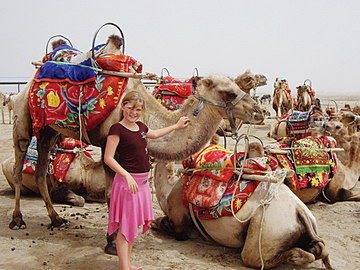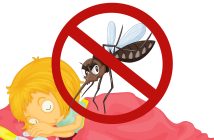Altitude & Adrenaline
 The Travelers: Alex and Noëlle Smulders and their children Ivar (14), Etoile (13) and Asia (12). The French/Dutch family has been in Beijing for three and a half years, having spent the previous ten years in Hong Kong. Alex runs a pet food distribution company, and sales/marketing veteran Noelle is taking a short sabbatical to enjoy Beijing.
The Travelers: Alex and Noëlle Smulders and their children Ivar (14), Etoile (13) and Asia (12). The French/Dutch family has been in Beijing for three and a half years, having spent the previous ten years in Hong Kong. Alex runs a pet food distribution company, and sales/marketing veteran Noelle is taking a short sabbatical to enjoy Beijing.
The Destination: Xinjiang province, China
The Plan: Alex and Ivar were looking for a mountain to conquer after scaling Mt. Bogda near Urumqi the year before. Mt. Mustag Ata near Kashgar (Kashi to the Chinese) was calling to them, and as the family like to see a really different part of China every year, this Silk Route destination sounded perfect.
The Reality: The whole family went to Kashgar for three days but only Alex, Ivar and Etoile took the nine-day trek to Mustag Ata.
How They Did It: Wild China (6465 6602) is an adventure trekking company in Beijing that had also organized the family’s trip to Bogda. This is not budget travel but when venturing off the beaten track, you want to make sure you’re properly taken care of. Wild China’s guides are knowledgeable, English-speaking Uyghurs (natives of Xinjiang) and all flights, transport, accommodation, meals and guides are included in the package.
Where to Sleep: The Xinglong Hotel the family stayed at (998 261 7988) in the Uyghur side of Kashgar was no picnic; best leave any desire for luxury at the door. Rated a three-star hotel, the family would give it a generous minus one. Try Wen Zhou Mansion and Seman, which are arguably Kashgar’s best hotels (try Asia Rooms, and search hotel names). With limited choices for accommodation, think ‘rustic charm.’
 For Carnivores: The family gorged themselves on delectable, foot-long lamb kebabs. You can order from a menu containing different parts of the sheep, and as the animals are often slaughtered right before cooking, you can be assured the meat is fresh. Noelle notes that vegetarians might struggle in a place like Kashgar. The family did find some good salads and dumpling soups, and stacks of juicy melons are sold by the truckload on roadsides, but otherwise, it was really a meat-lover’s paradise.
For Carnivores: The family gorged themselves on delectable, foot-long lamb kebabs. You can order from a menu containing different parts of the sheep, and as the animals are often slaughtered right before cooking, you can be assured the meat is fresh. Noelle notes that vegetarians might struggle in a place like Kashgar. The family did find some good salads and dumpling soups, and stacks of juicy melons are sold by the truckload on roadsides, but otherwise, it was really a meat-lover’s paradise.
Biggest Splurge: Carpets. The Smulders bought enormous, antique wool rugs for around RMB 10,000, with exquisite designs and sunburned colors unique to Xinjiang. Markets sell all manner of treasures along with rich tapestries of spices, even small bags stuffed with silky orange saffron threads. There are also oodles of cashmere, pashmina and fur. Be sure to haggle at the famed Yekshenba Bazaar (Zhongxiya Shichang). Bustling, colorful and surreal, it is a veritable market-at-the-end-of-the-earth.
 Biggest Culture Shock: The Sunday livestock market is the biggest in central Asia and is a must-see experience, according to the Smulders. Be warned: Animals are sold for meat and it all happens on-site. Nonetheless, the market is astonishing in size and atmosphere and overwhelms the senses. The crowds are thronging and the parking lot brims – not with cars, but with donkeys and their carts!
Biggest Culture Shock: The Sunday livestock market is the biggest in central Asia and is a must-see experience, according to the Smulders. Be warned: Animals are sold for meat and it all happens on-site. Nonetheless, the market is astonishing in size and atmosphere and overwhelms the senses. The crowds are thronging and the parking lot brims – not with cars, but with donkeys and their carts!
The Dangers: A horse pulling a cart went wild at the livestock market and charged straight at the family. If it wasn’t for their quick-thinking guide, it could have been disastrous. And on their trek back down Mustag Ata, the three mountaineers narrowly missed the collapse of a bridge across a river. This could have meant being stranded for weeks and was a particularly hairy moment.
The Verdict: Both Kashgar and this mountain trek are not for the faint-hearted; fitness and a strong stomach are required. This is a raw, isolated part of China that is probably better suited to older children. Check with your doctor to make sure all jabs are up to date, and be sure to pack appropriate first aid items and medications (such as altitude sickness and diarrhea tablets).




